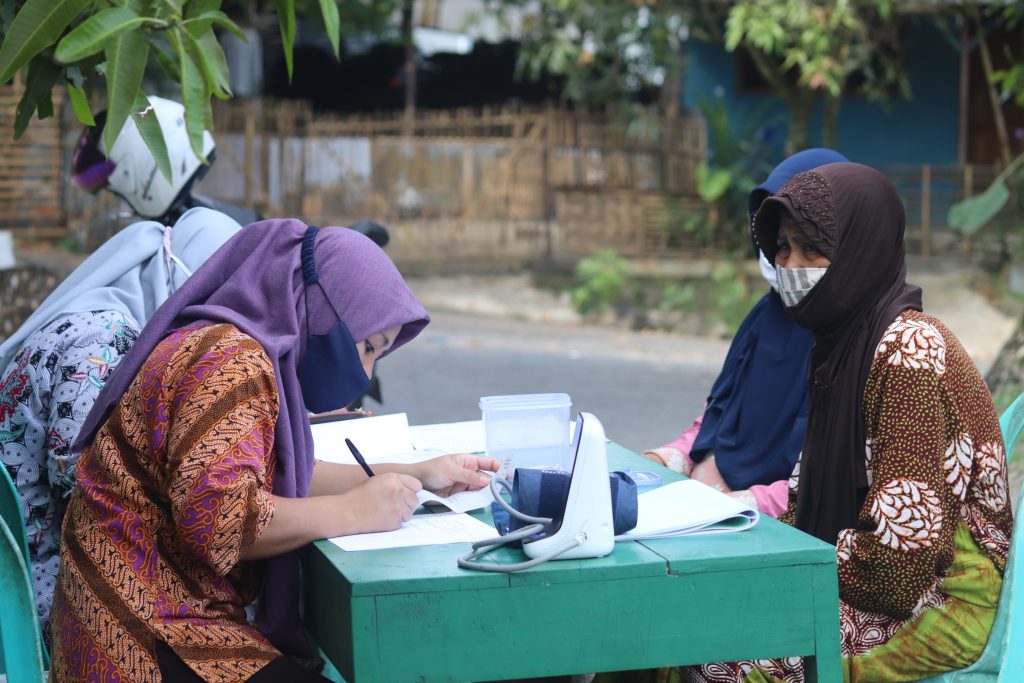
Author: Darmawan Prasetya – Social Policy Officer The PRAKARSA
Implementation of various pension programs for the elderly population – usually provided in the form of social assistance – often interpreted as a policy that shifts the role and function of the family in "taking care of parents".
This assumption is still quite strongly ingrained in various countries which have a culture and belief that caring for their children is a form of respect and reciprocation for their parents' love, services and all their sacrifices. This including in Indonesia.
One practice is when a child gives a certain amount of money to his parents on a regular basis, especially when his parents have reached retirement age and can no longer work.
There is nothing wrong with this habit. The problem is when this practice creates a mindset that taking care of the elderly is the domain and primary responsibility of the family – usually children and grandchildren – thus ignoring the importance of the state's role in providing social protection programs that function to provide welfare guarantees for the lives of the elderly. during their old age.
Currently, there are at least three social programs from the government related to increasing income that can accommodate the elderly group, namely Hope Family Program (PKH), Non-Cash Food Assistance (BPNT), and Assistance for the Elderly (Help LU). Of the three programs, only BanTu LU specifically targets the elderly, while the other two target poor families in general.
The coverage of these programs is also quite small, namely 4,5 million elderly people from the total elderly population 24,5 million souls. Our 2020 research found that funding aimed at the elderly group, especially at the regional level, is often unsustainable, the nominal amount is too small, and the beneficiaries are not on target.
Therefore, the government needs to expand the special social pension program for the elderly at this time so that they have the independence and resources to continue contributing to reciprocal relations in their communities.
But first, we need to first correct the misconception that taking care of elderly parents is purely the responsibility of the family.
Wrong understanding
The strong cultural influence on Indonesia that the elderly are the responsibility of the family is believed to be the cause of the current slow pace of reform of the elderly pension scheme.
The role of the family in caring for and fulfilling the welfare of the elderly group is deeply recognized Law Number 13 of 1998 regarding the Welfare of the Elderly.
Apart from legal regulations, the practice of fulfilling the needs of the elderly through providing monthly living expenses to their children and grandchildren also seems to have become part of the "obligation" for the family.
This is what ultimately creates the phenomenon generation sandwich, namely when someone gets double responsibility in being the main actor providing family resources. Individuals who become generations sandwich usually have to support their own family (children and partner) and their parents and in-laws at the same time, both in terms of finances, time allocation, and physical care.
Generally, the financial redistribution system in a household is built on the basis of reciprocity. This means that if obligations are carried out, rights will be obtained. For example, one couple has to support their elderly parents, and in return their parents help take care of their grandchildren while they work. However, sometimes gifts are made without any preconditions or reciprocity.
The impact is most felt by generations sandwich This, especially for those who are married, is from an economic perspective. Especially if the person's resources are still limited.
Therefore, it is time to stop the assumption that meeting the living needs of the elderly is the family's primary responsibility.
The urgency of expanding social pensions
A qualitative study found that there are still many elderly people who continue to work in their old age. The reason is that he doesn't want to bother the child.
The number of elderly populations who continue to work in Indonesia in 2019 up to 27%. Around 64% of the working elderly involved in the informal sector with working hours ranging from 35-48 hours a week, more than the standard maximum working hours of 40 hours per week in accordance with employment regulations.
This data shows that quite a lot of elderly people actually want to be independent and not financially dependent on their children and grandchildren or other family members.
Plus, the number of elderly people in Indonesia is predicted to increase continue to increase, so that the government must as soon as possible expand the social pension program - a pension scheme given to those who have not made previous premium contributions - as a form of commitment and responsibility in supporting the prosperous and dignified lives of the elderly.
In several countries, this program is implemented by the state providing assistance in the form of cash every month and targeting the entire elderly population who do not have pension security or old age savings.
Di Mexico since 2014, for example, the group of elderly people who already receive social security under MXN $1,092 (Rp. 897.557) have remained on the list of social pension recipients. This means that elderly people do not need to be in the poor category, as in the BanTu LU program in Indonesia, to be able to receive social pension assistance.
In study social policy, the expansion of social pension programs has two effects: crowding-in and crowding out.
Effect crowding-in occurs when the government's social pension program actually helps add value to family resources and encourages families to increase the amount of redistribution. Rather, the effect crowding out is when the program replaces the family's role in funding the lives of the elderly.
In fact, research in Germany, for example, found that pensions or social assistance to the elderly group did not affect children's tendency to continue to transfer a certain amount of money every month.
A similar thing was also found in China, a country that has a culture of "taking care of elderly parents" which is similar to Indonesia. A social pension scheme for rural residents in China instead increase the happiness of the elderly and not canceling the child's decision to give money to his parents.
In Indonesia itself, research finds that 72,9% of elderly people who receive assistance programs from the government such as PKH and BPNT provide benefits to household members, who are none other than their children and grandchildren.
Based on several studies, it can be said that the social pension program for the elderly will not necessarily reduce the role of the family in providing financial support to the elderly.
In fact, this can increase the amount of income in the family to be able to meet the needs of a household where there are elderly people.
Learning from the current living conditions of the elderly, the government also needs to open access to pension social security to all workers in Indonesia, both formal and informal work domains. This is done for the sake of realizing justice and equality, because informal workers with incomes below the minimum wage also have the right to access social security and health.
In other words, elderly welfare programs basically do not imply that children or grandchildren do not need to care for or support their elderly parents. That they want to take care of their parents is the decision of each individual.
However, what needs to be emphasized is that the welfare of the elderly, including financially, is the responsibility of the state.
***
This article was previously published on theconversation.com by title "The importance of the social pension program: Because the elderly are the responsibility of the state, not just their children and grandchildren” and in newspapers.tempo.co by title "The Importance of Social Pension Programs for the Elderly". Click to read: theconversation.com or newspapers.tempo.co


